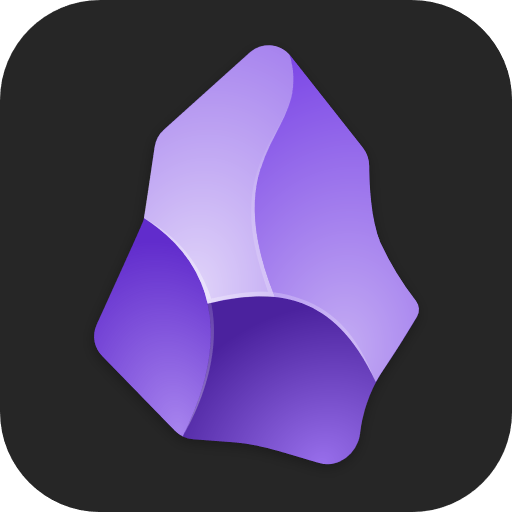I find the idea of owning a personal knowledge graph incredibly intriguing, but I’ve had trouble getting started. To be frank, I’m not quite sure what to include. A lot of the information that I might feel like I would want to save is also readily available via Google and can be retrieved faster by Googling than by diving into my Obsidian notes. I’m focusing primarily on personal use-cases, so nothing for business or freelancing. What do you use Obsidian for? And how much do you use it? Tens of notes per month… Or hundreds? Or even thousands?
I use it to organize my notes for the Dungeons and Dragons game I’m playing in. It’s fabulous for linking NPCs and locations with my notes for each session.
This is a wonderful idea. I don’t play DnD personally, but this example gives me some ideas. Essentially what you’ve done is organize creative works by breaking them down into bite sized interconnected pieces.
I started using Obsidian about a month ago. So far I’ve been treating it like a personal wiki. It took me a while to start really figuring out what to create, but now some of my primary subjects are technical notes (programming), ancestry, health, academic notes, etc.
I mainly feel prompted to create notes based on learned information. I might take an article found online with really interesting information, then convert it into my own words and save that as a note. The more concise I can make the note, the better. It’s preferable to try and get to the main point of a subject in a few sentences or less. Doing it this way makes future me spend less time retrieving the information I need.
One shortcut that has helped me a lot is CTRL + O. It will open a promp to find a note, or create one if that doesn’t exist. It’s important to give your notes basic tags as well for what topics they pertain to do that you can make searching easier.
As for how much I use it, currently maybe a couple times a day, but I anticipate my usage growing as my note collection becomes larger.
When you capture what you’ve learned from articles, how do you keep the information accessible in the future? My concern is that the cardinality of note topics is so high it will be difficult to find myself in a situation where I recall a note when I need it… But maybe I just need to give it a shot myself to see if it works.
I used to have this concern myself, but I think there’s nothing to worry about if you label notes properly, giving them full YAML, source links, tags, etc. Searching is an extremely powerful tool, but it’s only as powerful as the information you provide it.
Additionally, you could provide basic structure to your system if you desire. I personally prefer minimal structure, letting groups of notes emerge, which can later become MOCs (Maps of Content). These are the hubs where all my notes can connect together, which makes finding them later even more simple.
A lot of my initial inspiration for how I set up my Obsidian workflow came from Aidan Helfant. He has some great resources for how to get started and details about his own processes.
One more resource that I only recently learned about was Obsidian Publish. These are public Obsidian notes from people that have decided to publish them publicly online. This is Aidan’s for example. It might help you figure out what kind of setup you’d like to try.
Ultimately everyone creates a system based on personal preference and experimentation so don’t be afraid to try new things :)
I fill it with article notes, journal entries, and project plans that I’ll never look at again for the rest of my life.
Relatable. One of my fears is that this content that I’m devoting a lot of time towards writing and curating will never be helpful to me or read by me a second time.
I use it as a Roleplaying GM to keep my notes and my prep work
But also recently to build up a world for potential short stories.
It’s my trapper keeper. I use it for everything, combined with Todoist and Zotero.
In my case, it’s a mixture of life wiki, personal project wiki, videogame wiki, and journal (not daily, but more for a few significant days).
Like, there’s this cluster with all the people that I know, pointing to their respective communities, and who participated in which annual social gathering (which have their own articles with pictures and videos). With one (usually rather empty) article per person, I can just link to them from other relevant places.
Then there are all my (software) projects and generally intellectually interesting stuff I thought about, which I wrote down over the years (which took me a few weeks to digitalize/find/sort once I got my hands on obsidian).
In terms of video games, it’s either the knowledge/realizations I made or rough copies from some online wiki articles. Considering my internet provider is horrible and unreliable, having an offline source can be really nice sometimes.
In general, it’s really useful to support my shitty memory. Having detailed descriptions of what I’ve made or what happened just makes it easier to re-experience certain moments.
I love these examples! These use cases sound very applicable to me, so I’ll try giving them a shot
It works quite well so far. :D
And even though the graph is an interconnected mess, the clusters are still mostly distinguishable from each other. funnily enough, the video game articles blow their space out of proportion because of all the attachments. some of my video game articles tend to be asset or screenshot-heavy.

^ my vault after 10 months
I mainly use it to record my notes and processes on photography, post processing photos and bread making. It also gets used for Linux, Ubuntu and vim tricks and tips that I find useful.
Whilst you can search Google for information, I would rather search Google once, find a good link then make my own notes that I can refer back to quicker than using Google again. I can also combine many Google links into one document as each link may have better points than the other.
Overall it’s to make my life more efficient by not having to remember everything and also “writing is learning”.
@coderofhonor Personal wiki, daily/weekly/monthly planner, project and task tracker (big picture)
All sorts of things:
-
I use it for 3 general information displays (site updates, RSS feed updates that meet certain keyword criteria, and a weather dispaly) that i feed from terminal apps (the terminal apps print to text files, which Obsidian then displays)
-
I use it as a calendar/task manager that tells me everything from what i’m doing tomorrow to what i need to check in six months
-
I use it to organize world building stuff - everything from one-off ideas, to idea lists, to huge files full of names, places, etc even pictures.
-
I use it to organize true crime research stuff - both current and past cases, and larger cultural trends like the Satanic Panic.
Tags + folders make it very easy to keep stuff organized, which i like, and since i can just zip up a folder and send it to someone, it’s very portable if it needs to be.
-
I started to use it as a personal journal (with the help of Templater and Periodic Notes). HUGE upgrade from trying to use wordpress as a journal 😭
But now I also use it as my central collection of notes (about programming, video games, recipes I like, really good short stories or blog posts). Pretty much anything I want to remember, find interesting, or want to learn more about later. I used to have my notes littering my desktop and cloud storage accounts but I’ve since moved everything into Obsidian. Recently I figured out how QuickAdd works, so now when I press
ctrl + nit quickly creates a new note with today’s date and time which is a lifesaver.Yeah a lot of the stuff I store in Obsidian can be found on Google, but it’s easier to find on Obsidian, and I write down clarifications and simplify things in my own words so I can understand it better.
I also use it for notes of things I want to do. Not necessarily todo lists, but things like movies to watch or stuff like that.
I have two vaults:
- work - meeting notes, project notes, tasks, etc. I used Evernote for years for this purpose and dipped my toe in Notion for a while before realizing I really needed offline access.
- personal - this is more of a mishmash of stuff. workout notes, progress on books i’ve been reading (sometimes I just write down what page number I got to that day and not anything more elaborate), trip ideas (with links to hotels, restaurants, etc. that sound interesting), a couple reference notes reminding me how to perform certain chores, etc.
Tbh, I don’t use the graph stuff at all. And the information I record in Obsidian is generally not content I’d be able to google.
Mostly for class notes.
It isnt possible to find everything I need on Google. Instead I have to take presentations, textbook chapters, videos and summarize them. I add in my own understanding and where I misunderstood for later.
Not sure if it’s common but I use tags to mark questions (e.g #Q Why does she say that) and todos (e.g #TODO read this next), which distinguishes them from normal text and can be searched for. Links make it easy to organize. Vim key bindings make it pleasant typing. Has latex (mathjax) for math.







